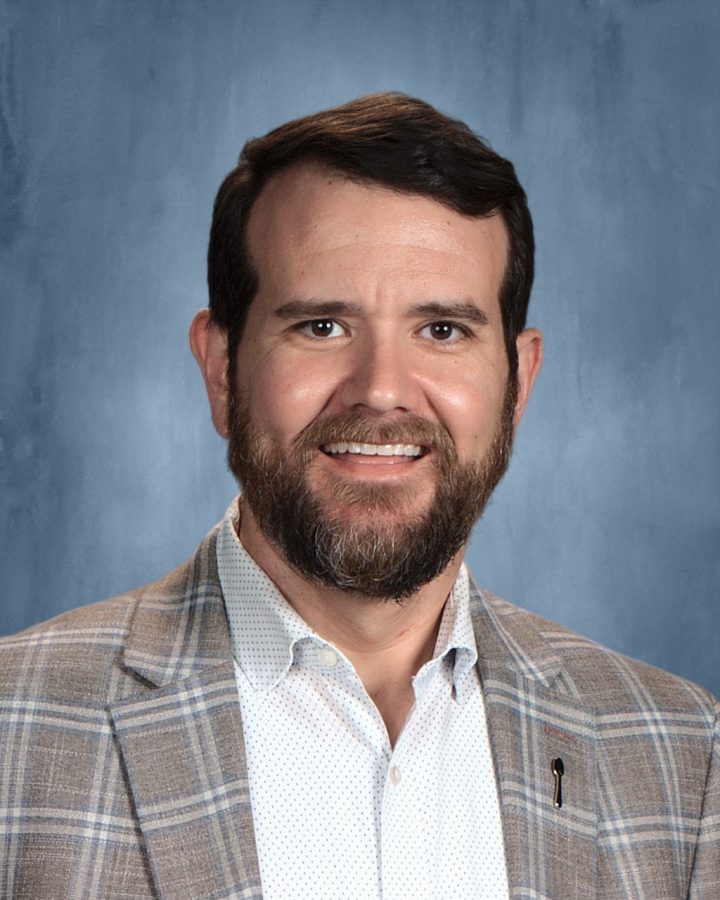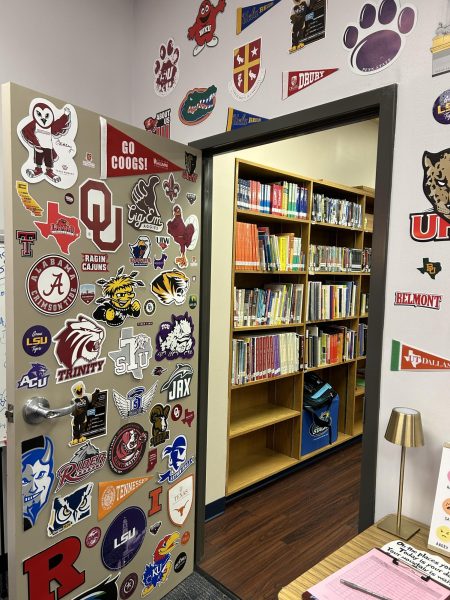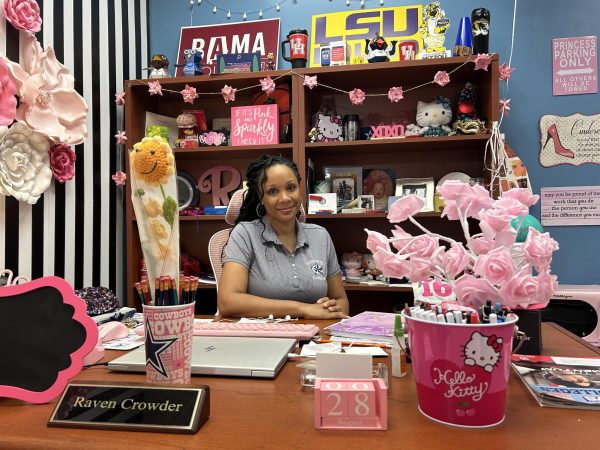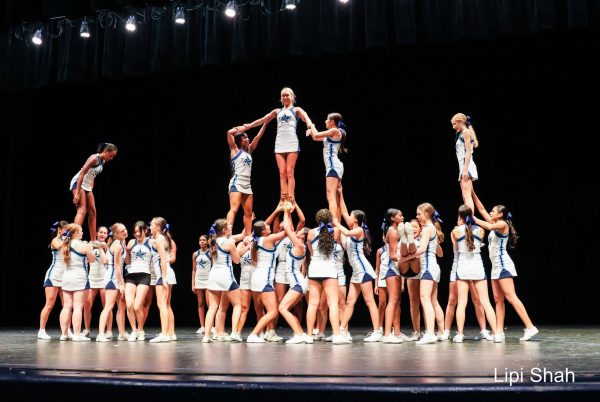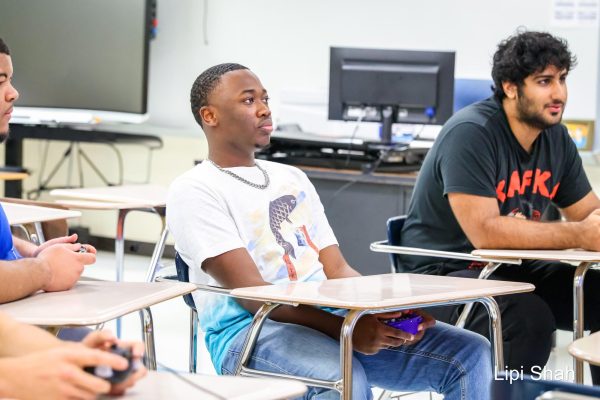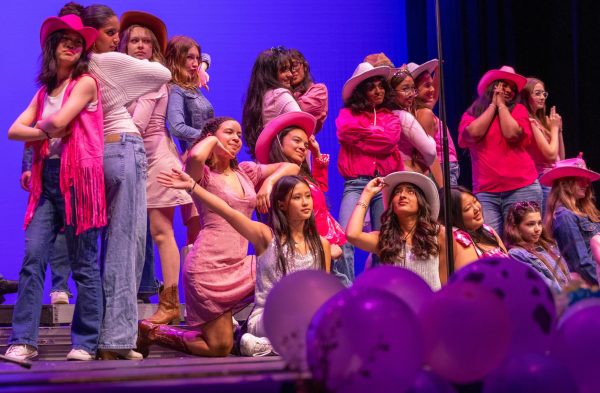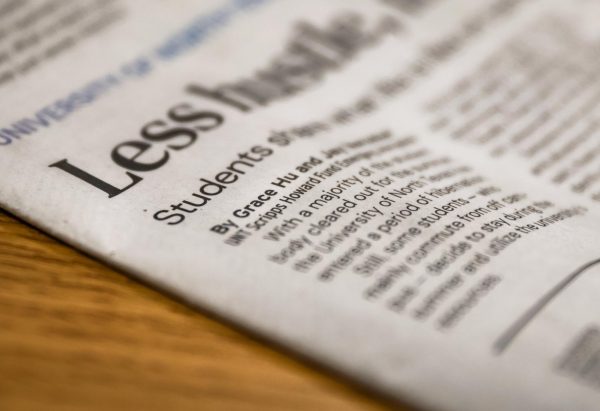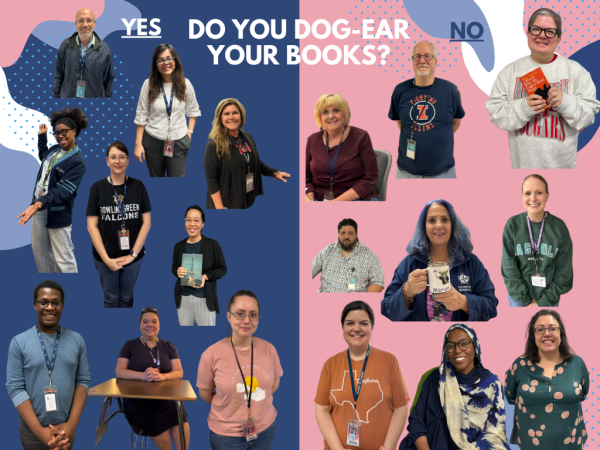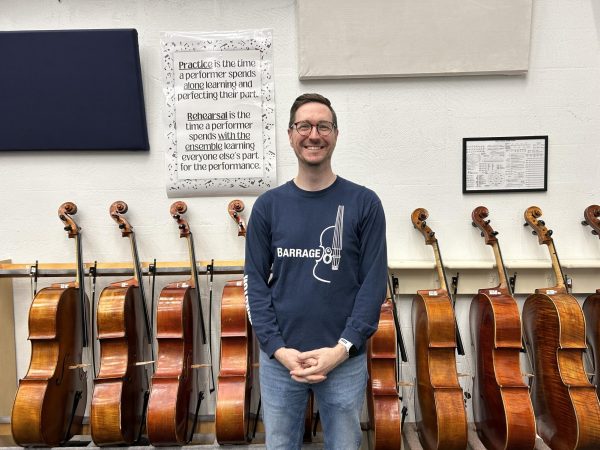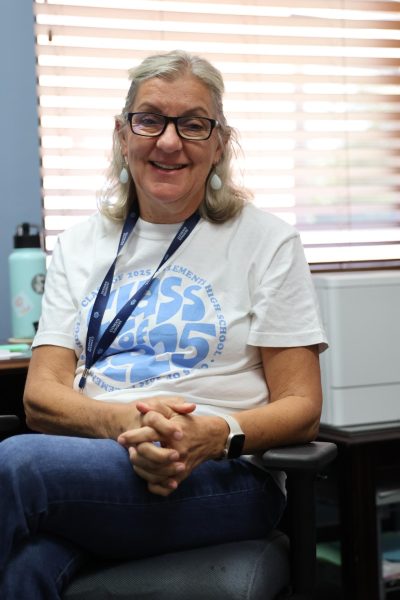Q&A with Principal Shillingburg: “Community, A Culture of Kindness.”
Formerly a Boy Scout, a high school band section leader, and a youth pastor. Formerly a kindergarten teacher and the principal of James Bowie Middle School. A self-proclaimed “music guy” and a passionate believer in serving and giving as the purpose of life, Brian Shillingburg will serve as the principal of Clements High School as he goes into his 23rd year in education. Speaking with equal heart about a desire to build a culture of kindness and a love for Foo Fighters, Principal Shillingburg paints a picture of the hopes he holds for Clements in the following interview, which has been edited for clarity.
If there was a mixtape of your life, what 3 songs would be on it?
Probably something from the ’80s. I’d go with “Take on Me”. I’m a music guy, so l love music. Something like Foo Fighters – I’m a big Foo Fighters guy. “Hero”, [I] love that. I’m going to see Incubus on Friday with my wife. I love Incubus – I was a big 90’s alternative guy.
Music just made up part of my life. I was, early on, just drawn to music. My dad was a music major, my brother was in band, I was in band, [and] my uncle [was] a band director. Music just spoke to me – it always has. I moved up through high school in the band and then, in my personal time, I was in church; I was a worship leader for several years, a youth pastor, and so I think music really kind of defines me.
When I had little kids 20 years ago, music was so big to me, and it really helped me communicate to students. When I was a kindergarten teacher, everything we did was around music: everything, from the beginning to end of the day, for those two years.
Music is kind of my lifeblood. You’ll see me around here welcoming students with music. If you were at my assembly, you saw me with music – you’re gonna see a lot of music in my world because it brings joy.
If you were put in the Hunger Games, when the countdown ended, would you run for the woods or the cornucopia?
I think for me, just as a leader, it’s situational. Just in any situation you’re in, I’m probably going to be thinking smart. I’m gonna be thinking about survival. I’m gonna be thinking about how to outlast people. I was a Boy Scout as a kid, so I probably lean towards the side of grab and survive and get out of there.
As a high schooler, would you have chosen differently? Were you more impulsive when you were in high school?
I had a hard middle school experience, so I was very insecure as a kid. And I think that’s a lot of high school people, as you join into the ranks. Middle school is just a hard time and people are brutal, and so when I hit high school, my world changed. My world changed because I started off in that summer band experience, and I developed three hundred friends right off the bat, which was such a gift. And for me, I’m a connector. I’m all about community. I’m all about feeling a part of something. And so that really kind of changed my direction.
As I kept going more into high school, that’s where I started becoming more of a leader. I started stepping up and becoming a section leader, and then being more aware of myself in the band and my ability, and then taking ownership of that, then leading others in my junior and senior year.
Out of curiosity, what instrument did you play?
I was a trumpet player.
As an educator, have you had an educator that made a major impact on you?
This is a big one for me because I feel like education is about giving back. Two teachers in my life – one of them was Mr. Askins, my seventh- and eighth-grade math teacher. Tremendous man. It wasn’t about the math; it was about the stories; it was how he delivered his instruction. He connected to us, but he went above and beyond. He went past math – it didn’t matter what we were learning, it mattered so much more to him about the experience. And that’s where I fell in love with math. He showed me how to love what math was all about, through that connection.
And then, Mr. Siberson, my AP Physics teacher. He was a tremendous leader. Again, [he] built the community in a class; [he] took us out to his ranch, we did experiments at Six Flags, we lived so much more than just physics, we did it together. And so, in that community, I think that’s where I wanted to be a part of something bigger and give back.
A number of new safety policies were introduced at the class assemblies. Safety, understandably, is a priority after the Uvalde school shooting earlier this year, but how would you address complaints regarding the effects of these policies on student mobility during passing periods as well as after school?
There’s a quote that we’ve been working with, and we’ve been kind of coming back to it. Let’s just be honest, school shootings have been awful. They’ve ruined communities, they’ve taken our nation captive, and the thing that we have to remember is that safety is not convenient. So, we have been really thinking through that and thinking through the needs of our campus. And something to think about in school shootings in general is that typically, in any kind of school threat situation, in all scenarios, the common situation is that if your door has been locked, they’re not getting in. And so, we have to work past those mobility challenges. We have to prioritize safety. That has got to be paramount.
I think for our special needs students and our staff who have special needs, the more we practice and the more that we have routes that we take, or when we’re aware [and] we know what to do, that’s gonna be the solution because in any situation, either way, we’re gonna be inconvenienced. But I would rather them be inconvenienced and safe than more comfortable and not safe. We have to put that at the top.
Dress code sweeps were also introduced during class assemblies. Can you describe the rationale behind this procedure?
My number one priority for you is safety. But the one right after that is that you’re getting the best education possible. I want to keep a learning environment that is accessible to all. Listen, I get it; I got a high schooler. I just had another student I fostered – he’s twenty now and he went up through the system. And this is a big time where [in] high school, you’re finding who you are, you’re figuring out what you’re about. I don’t ever want to take away from that.
What you’re gonna see with the dress code sweeps is we’re not gonna be taking out a ruler and saying “oh, your pants aren’t this long”. That’s not what we’ll be doing; what we’re doing is we’re picking the things that are kind of out of control. We’re not trying to push this horrible dress code, but we have to be consistent on some things. We have to draw a line somewhere. Because if we don’t, we lose the learning environment as a safe place. That’s what we wanna maintain. And that’s why we have a dress code.
I have many students who would come to me in middle school, and they would talk to me and say, “It’s my freedom, it’s my right”. Students are learning to express themselves and I get that. But their learning experience is something I have to prioritize. And we have a dress code for a reason. The district sets a dress code for a reason. And it’s for that [the learning experience]. And if you read the line on what the dress code is, [it]’s that we are trying to highlight the profile of a graduate. I believe in that. I believe that I’m also getting you ready for what’s beyond high school. I’m getting you ready for what a job expects of you. I’m getting you ready for what an employer wants to see. I play a role in that, and I think [the] dress code does that as well.
When you walk the halls of Clements in five years, what do you envision seeing?
Community. A culture of kindness. Seniors reaching out and supporting those who are fresh to high school. A safe place for students to grow and flourish. And I already see that; I already see those things greatly here. But, a focus on not just your academics, but really making you the most well-rounded student that you can possibly be.
I talked a lot in those assemblies about producing a student out of Clements that’s not only extremely knowledgeable and focused in content areas and highlights those things that Clements is so well known for, but also a side of a student that really understands [that] the purpose of life is to serve and give, is [the] giving back, that there’s value in that, and that they’ll want to come back to do that at Clements, or wherever they’re at. And that’s what I hope to see a culture of here at Clements. It’s already here – I just hope to grow it even more.
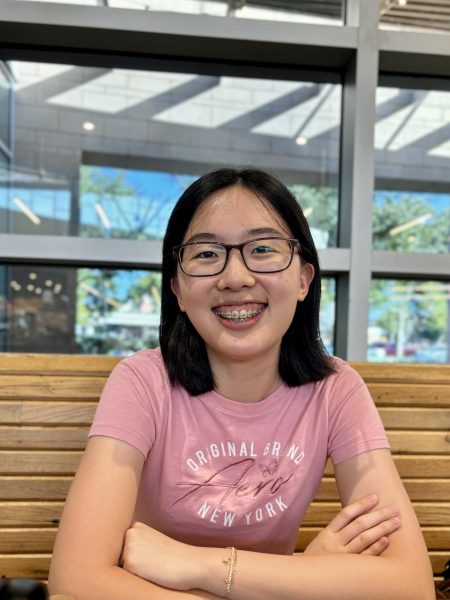
Hi there! My name is Karen and I’m a senior this year. I am so excited to be back for another year on the RoundUp! I’m passionate about topics like...

